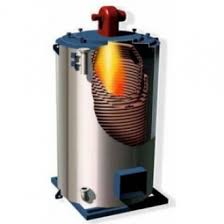
8 сар . 15, 2024 05:17 Back to list
Understanding Corrosion Mechanisms in Steam Boilers for Improved Efficiency and Longevity of Operations
Corrosion in Steam Boilers Causes, Effects, and Prevention Strategies
Steam boilers are essential components in various industrial processes, generating steam for heating, power generation, and other industrial applications. However, the efficiency and longevity of these systems can be significantly compromised by corrosion, a prevalent issue that can lead to costly repairs, unplanned shutdowns, and safety hazards. This article explores the causes of corrosion in steam boilers, its effects, and strategies for prevention.
Causes of Corrosion
Corrosion in steam boilers primarily arises from the chemical and physical interactions between the metal components and the steam or water that circulates within the system. The most common types of corrosion found in steam boilers include
1. Uniform Corrosion This occurs when the corrosion rate is relatively even over the entire surface of the metal. It is typically caused by the presence of oxygen in the boiler water and can lead to significant material loss over time.
2. Pitting Corrosion This localized form of corrosion leads to the formation of small pits or holes in the metal. It is often the result of the presence of chlorides or other aggressive ions in the boiler water.
3. Stray Current Corrosion This type occurs when electrical currents from external sources corrode the boiler's metal surfaces. Stray currents can arise from nearby electrical systems or grounding issues, creating significant risks in piping and boiler systems.
4. Galvanic Corrosion Occurring when two different metals are in contact in the presence of an electrolyte, galvanic corrosion can severely damage one of the metals, typically the less noble one.
5. Under-deposit Corrosion The presence of deposits, such as scale or sludge, can create localized areas where corrosion is accelerated beneath the deposit, ultimately leading to unexpected failures.
Effects of Corrosion
Corrosion can have dire consequences on steam boiler systems. Its effects include
steam boiler corrosion

- Reduced Efficiency Corrosion can create rough surfaces and scale build-up, leading to inefficiencies in heat exchange and increased fuel consumption. - Safety Hazards The structural integrity of the boiler can deteriorate due to corrosion, posing safety risks such as leaks, malfunctions, or even catastrophic failures.
- Increased Maintenance Costs Corrosion often necessitates frequent inspections and repairs, contributing to higher operational costs and downtime.
- Shortened Lifespan Corroded components may need to be replaced more frequently than their non-corroded counterparts, reducing the overall lifespan of the boiler system.
Prevention Strategies
Preventing corrosion in steam boilers involves implementing appropriate strategies to manage water chemistry, monitoring, and regular maintenance. Key strategies include
1. Chemical Water Treatment Maintaining optimal water chemistry is crucial for preventing corrosion. This involves controlling pH levels, reducing oxygen concentration, and adding corrosion inhibitors to the boiler water.
2. Regular Inspection and Monitoring Routine inspections can help identify early signs of corrosion. Using non-destructive testing methods, such as ultrasonic or radiographic techniques, can monitor wall thickness and detect pitting.
3. Filtration and Blowdown Regular blowdown of the boiler reduces the concentration of impurities and dissolved solids in the water. Filtration systems can also help remove impurities before they enter the boiler.
4. Use of Proper Materials Using corrosion-resistant materials and coatings for boiler components can significantly mitigate the risk of corrosion. Selecting appropriate alloys, especially in high-temperature or corrosive environments, is vital.
5. Design Considerations Designing systems that minimize stagnant water areas and facilitate good flow can help prevent localized corrosion and deposits.
In conclusion, corrosion is a significant challenge in the operation of steam boilers. However, understanding its causes and implementing effective prevention strategies can prolong the life of the boiler systems, enhance safety, and improve operational efficiency. Proper maintenance and proactively managing water qualities are key to combating corrosion and ensuring the reliable performance of steam boilers.
-
Best Steam Boiler Design PDF Free Design Calculation & Diagram Downloads
NewsJun.10,2025
-
Hot Boiler Water Heater Efficient Heating Solutions for Home & Commercial Use
NewsJun.10,2025
-
Steam Boiler Safety Devices High-Quality Protection Valves
NewsJun.10,2025
-
Ultimate Steam Boiler Checklist for Safety & Efficiency
NewsJun.10,2025
-
Optimal Hot Water Boiler Temperature Setting Guide
NewsJun.10,2025
-
Effective Hot Water Boiler Chemical Treatment Protect & Maintain
NewsJun.09,2025
Related PRODUCTS






















